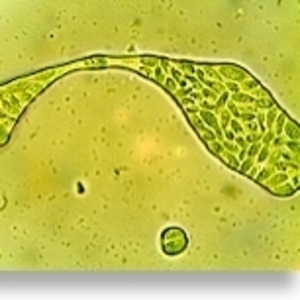Algae cultivation, biodiesel project to be demoed in Portugal

April 29, 2014
BY Ron Kotrba
A consortium of biotechnology experts has started to build a one-hectare pilot unit for the production of microalgae in Portugal, according to Wageningen UR, one of the companies involved in the project. The unit will demonstrate an integrated approach to produce microalgae biomass with biodiesel validation in a sustainable manner.
The demonstration pilot unit is one of the milestones expected from the Integrated Sustainable Algae (InteSusAl) project, which aims to optimize production of algae by both heterotrophic and phototrophic routes. It will also demonstrate integration of these production technologies to achieve the microalgae cultivation targets of 90 to 120 dry tons per hectare per year.
Advertisement
Advertisement
“InteSusAl’s demonstration unit comes in a time of extreme importance to ensure Europe’s energy supply security,” said Neil Hindle, coordinator of the InteSusAl project. “We are glad that the European Commission is making it possible to demonstrate this new approach to produce microalgae biomass. We hope that our results will attract attention from investors interested in financing a 10-hectare site to produce microalgae in a sustainable manner on an industrial scale.”
The project integrates heterotrophic and phototrophic production technologies, using glycerin from biodiesel production as a carbon source to the heterotrophic unit, and validating biomass output for biodiesel conversion. The demonstration unit will be located in the municipality of Olhão, in the Algarve region of southern Portugal. The pilot site will include fermentation units, tubular photobioreactors and raceways.
Advertisement
Advertisement
The project will be assessed for its sustainability through what Wageningen says is a robust life-cycle analysis that will consider both economic and environmental implications.
Demonstration trials are expected to begin October.
The InteSusAl Consortium is composed of six partners from four European countries. InteSusAl has received funding from the European Union’s Seventh Programme for research, technological development and demonstrations.
Related Stories
The U.S. EPA on July 8 hosted virtual public hearing to gather input on the agency’s recently released proposed rule to set 2026 and 2027 RFS RVOs. Members of the biofuel industry were among those to offer testimony during the event.
The USDA’s Risk Management Agency is implementing multiple changes to the Camelina pilot insurance program for the 2026 and succeeding crop years. The changes will expand coverage options and provide greater flexibility for producers.
The USDA’s National Agricultural Statistics Service on June 30 released its annual Acreage report, estimating that 83.4 million acres of soybeans have been planted in the U.S. this year, down 4% when compared to 2024.
SAF Magazine and the Commercial Aviation Alternative Fuels Initiative announced the preliminary agenda for the North American SAF Conference and Expo, being held Sept. 22-24 at the Minneapolis Convention Center in Minneapolis, Minnesota.
Scientists at ORNL have developed a first-ever method of detecting ribonucleic acid, or RNA, inside plant cells using a technique that results in a visible fluorescent signal. The technology could help develop hardier bioenergy and food crops.
Upcoming Events










